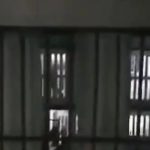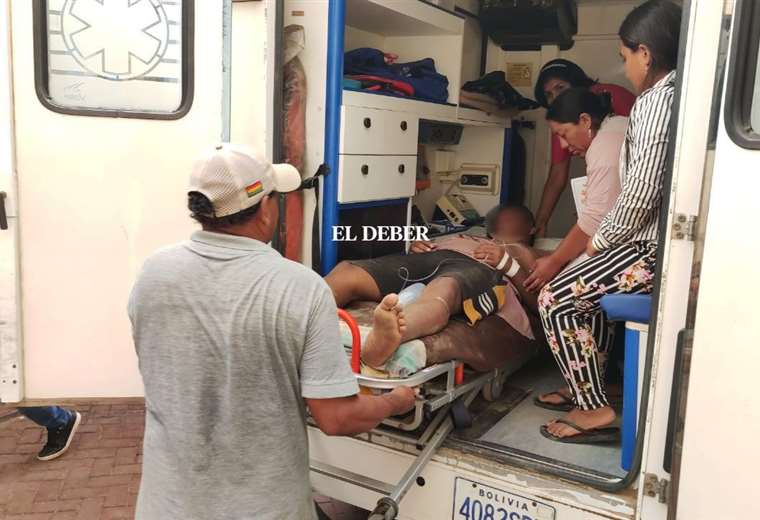Teacher Elisabeth Tenreiro, 71, who died after a 13-year-old student promoted a attack on a school in Vila Sônia, was honored this Wednesday afternoon (29) at Praça da República, in the center of São Paulo. The act took place in front of the headquarters of the State Department of Education and was convened by the Union of Official Teaching Teachers of the State of São Paulo (Apeoesp).
With songs and words of protest and holding roses and white balloons, teachers from the state education network took advantage of the tribute to teacher Elisabeth and other victims of violence in schools to demand the state secretary of education of São Paulo for better working conditions and more safety in classrooms. Stamping the message “Books Yes, Weapons No” on their chests, the teachers present at the event highlighted that the proposal to increase policing in schools will not solve the problem of growing violence that they have been facing in the classrooms.
Present at the act, teacher Letícia da Silva Martinez, 31, who teaches Biology at a school in Osasco (SP), said that what happened this week at the Vila Sônia school was “an announced tragedy”. According to her, episodes of violence are common in schools in São Paulo. “I’ve already seen a student hitting a teacher, a teacher being prevented from complaining about the aggression. And we are also verbally abused and we can’t do anything, ”she complained. “Violence at school is associated with several social problems: a family that is not structured, a child that was not assisted, a totally violent communication that the child has had throughout his life. It will burst at some point. And where does it burst? At school”.
This is aggravated, according to her, because there is a lack of structure and professionals in the school environment. “This is a general scenario of education: there are no inspectors, there are no teams, students and teachers have no support. What happened to the teacher [Elisabeth] it was the reflection of a scenario that is present every day in school reality”.
For Letícia, the proposal made by the government of São Paulo to increase the number of police officers in schools may even help, but it does not solve the problem. “He [policial] can assist in some matters, such as in an emergency situation. But the police at the school do not solve the problem because the root is different, ”he said.
According to her, the solution to this problem needs to involve more investment in the area. “We also have to be careful with these families and with these students. It is also necessary to have a psychologist and a social worker at the school, in addition to a whole qualified team [multidisciplinar]”. She complained that, currently, these roles have been accumulated by teachers.
Cláudia Martinho, 62, who is also a teacher, agrees. For her, who has been teaching for 37 years and currently works at a school in Interlagos, in the south zone of São Paulo, violence is caused mainly by the government’s neglect. “In the vast majority of schools, there is a lack of staff. In schools with more than two thousand students, there are only two employees to clean the school. There are no employees to open the school or stay in the yard. There are a lot of people who talk about putting police [nas escolas]. But it is not the police that will provide education. It is necessary to provide structure for schools to guarantee a minimum of things”, she said. “We have to make the school an attractive environment, a respectable environment. It’s not police versus robbers,” she added.
For Maria Izabel Azevedo Noronha, known as Bebel, president of Apeoesp and state deputy of São Paulo, teachers today are afraid of daily violence. “We are insecure. The school is unsafe. I’m not talking about the building, but the school environment itself. We don’t want policing, but we want the presence of psychologists and multidisciplinary teams,” she said. “We need several fronts in the search for answers so that we can understand why violence, year after year, has gotten worse. What leads to it? Without fear of being wrong, I have said that the State has been silent”, she told Agência Brasil.
For state deputy Eduardo Suplicy, another point that needs to be discussed again in society concerns the policy of disarmament. “In my opinion, what happened [o ataque à escola] has a lot to do with this proclamation that it would be good to distribute more weapons to the Brazilian people,” he said. “That was a real tragedy. We need to learn lessons to prevent new tragedies like this from happening,” he said, in an interview with Agência Brasil.
“We have to think about it and I believe more in educational and constructive measures than in police measures,” he added.
Other side
Contacted by Agência Brasil, the São Paulo State Department of Education informed that it has an active and active conflict mediation program, called the Program for the Improvement of Coexistence and School Protection (Conviva SP). According to the secretariat, the program “was created with the proposal that every school be a supportive, collaborative, welcoming and safe learning environment, in the pursuit of improved learning” and that it aims to “identify vulnerabilities of each school unit to implement them proactive security actions.
The secretariat also informed that it will intensify the program, increasing to 5 thousand the number of professionals dedicated to the application of violence prevention policies in the units, which would mean that each school in the state education network would have one of these professionals to prevent violence.
“The program’s new educators will receive training to identify vulnerabilities in each unit, in addition to putting Conviva’s actions into practice in schools,” the secretariat said in a statement. This week, the secretary of education, Renato Feder, had already said that would increase from 500 to 5 thousand the number of professionals dedicated to Conviva.
The folder also informed that the hiring of 150,000 hours of professional assistance in the Psychologists in Education program, which offers psychological support to guide school teams and students, is in progress. The service, which was already offered in the state network, will be face-to-face, said the secretariat.
The secretariat also said that it will update and make the Conviva platform, called Placon, which is used to register incidents of violence in schools, more agile.
















